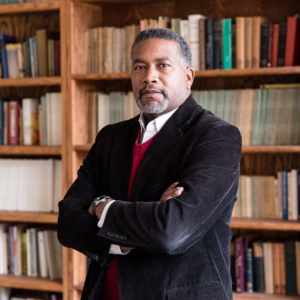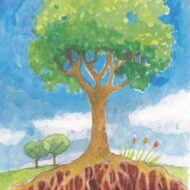Keeping certain people invisible, not letting them speak for themselves, not letting them be a part of (or lead) important conversations that effect their future… This is oppression. This is racism. This is whiteness. This is white supremacy. If the words ‘whiteness’ or ‘white supremacy’ turn you off or make you feel uncomfortable, please look at how I am using them in this situation below. It is not about the color of any particular person’s skin. It is not about violent or aggressive racial slurs. It is about perpetuating histories and behaviors of oppression, subordination, marginalization and silencing that continue a narrative that keeps those with power as the ones with power and those who have been stripped of their power, continuously subordinated, disregarded, and often harmed.
—
NPR’s “All Things Considered” came to Asheville and hosted a panel about “what happens when a town gets hot and becomes highly attractive to outsiders.” The panel discussed how the city’s popularity “has placed a significant burden on many of the city’s oldest communities by accelerating a gentrification process that prices out older residents in favor of new and more affluent residents.” The panel acknowledged that “the communities that are most impacted by gentrification are largely African-American.” However, no one from the city’s African-American or Latino community was invited on the panel.
 Darin Waters, Ph.D. points out, “As a native of this city’s African-American community, I found the absence of these voices troubling. In the case of the African-American community, this experience of exclusion from important conversations has deep historical roots. Throughout the period of slavery and Jim Crow segregation, our community was kept on the social, economic and political periphery. Only in those instances where we were willing to assume great risk were we allowed to speak for ourselves. In most instances, our lives, interests and aspirations, if it was even acknowledged that such existed, were expressed for us, and in most cases by those who were responsible for our community’s marginalization in the first place. The failure to include African-Americans in a conversation that addressed issues that impact their communities so directly only reinforces this history.”
Darin Waters, Ph.D. points out, “As a native of this city’s African-American community, I found the absence of these voices troubling. In the case of the African-American community, this experience of exclusion from important conversations has deep historical roots. Throughout the period of slavery and Jim Crow segregation, our community was kept on the social, economic and political periphery. Only in those instances where we were willing to assume great risk were we allowed to speak for ourselves. In most instances, our lives, interests and aspirations, if it was even acknowledged that such existed, were expressed for us, and in most cases by those who were responsible for our community’s marginalization in the first place. The failure to include African-Americans in a conversation that addressed issues that impact their communities so directly only reinforces this history.”
When the audience brought attention to this issue, it was glossed over with justifications that there were people of color on the panel. As if the presence of some minority voices should be seen as representative of all minority voices.
Dr. Waters points out that “by failing to include a representative from the (Asheville) African-American community on her panel, Martin, whose show attracts a weekly listening audience of more than 13 million listeners, not only reinforced false notions about the region, but also perpetuated the sense of marginalization and invisibility that African-Americans have been combating for a long time.”
All quotes from this article, “Were All Things Considered” by Dr. Darin Waters
